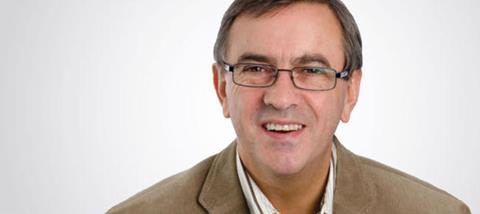
Well, actually, ‘belting out’ may be a bit of an exaggeration: I had left my glasses on the table and was desperately trying to keep up with the autocue. ‘Singing’ might be a bit of an exaggeration as well. The backing track was the same as Elvis Presley’s and, to my ear, my rendition didn’t sound that different. But halfway through, I realised that the noise coming from the audience wasn’t applause ? it was laughter. It wouldn’t have been so bad except that the next person to go up on the stage not only looked like Robbie Williams, he sang better than him. When he finished, people cried out for more.
He went from song to song; the guy was brilliant. But as I watched him, hoping that at any second he would trip over the mic wire and fall off the stage, a realisation dawned on me: karaoke has at its heart a dreadful dilemma: the better you get at it, the more you look and sound like somebody else. The Robbie-alike on stage had a great voice, but I wondered if he ever wanted to sing his own song. Perhaps he’d tried, but discovered that actually he had no words or moves that weren’t borrowed.
If karaoke were only played at weddings and parties it wouldn’t be such a problem. But it’s not. It is rolled out in schools, colleges, churches, offices and homes. Some of us have spent our whole lives trying to sing somebody else’s song. But one day we discover that we have spent so many years trying to be somebody else that somehow we have missed the person that we are. We have tried to please our parents, our teachers, our friends. We have dressed in a way that we hope they will like, we have taken subjects at school that they wanted us to study, we have tried hard to be witty, spiritual, academic or sporty because we have desperately wanted to be part of the group.
I wonder why we so often overvalue others and persistently undervalue ourselves? Henri Nouwen put it this way: ‘As long as you remain blind to your own truth, you keep putting yourself down and referring to everyone else as better, holier, and more loved than you are. You look up to everyone in whom you see goodness, beauty and love, because you do not see any of these qualities within yourself.’
I remember getting a letter from a woman who wrote, ‘I have spent 50 years ? half a century ? imprisoned by other people’s opinions of me.’ When we live like that we forget the most important opinion of all ? what God thinks of us. The ancient poet reminds us of the uniqueness and intimacy with which God created each human being in those incredible words in Psalm 139: ‘You created my inmost being; you knit me together in my mother’s womb’ (v13). And because of that, our true fulfilment can never be in singing somebody else’s song, but in becoming the person we were born to be.
Jewish legend records the words of one of the great rabbis of the 18th century, Rabbi Zusya. It says that just before he died, the rabbi said: ‘In the world to come, they will not ask me, “Why were you not Moses?” They will ask me, “Why were you not Zusya?”’



























